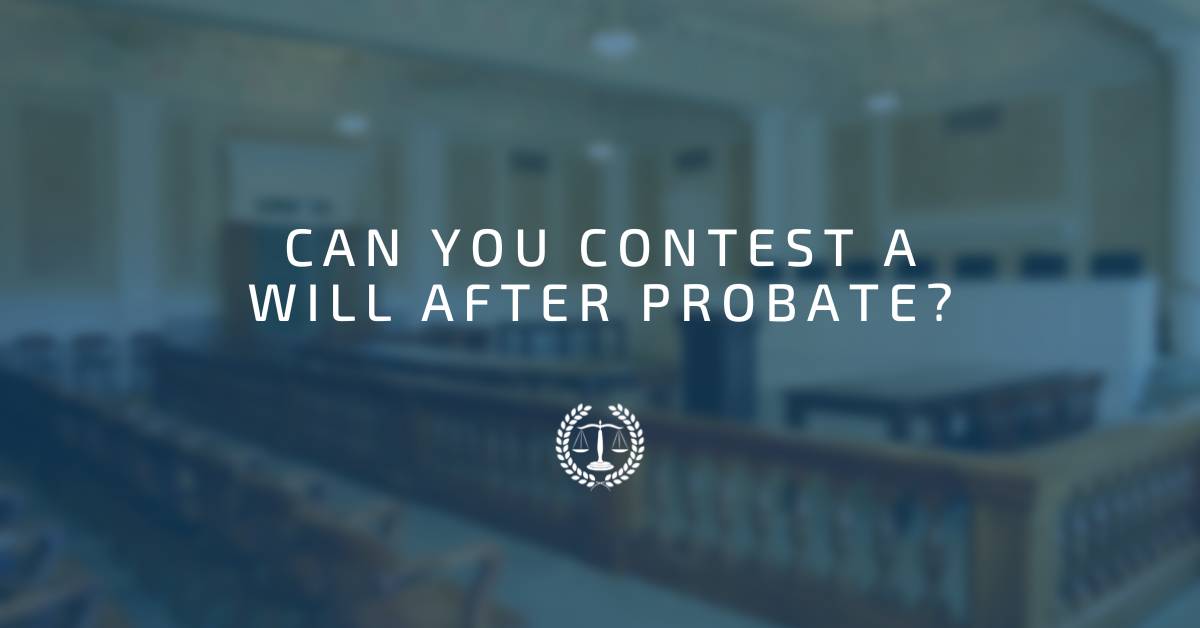If you are a beneficiary under a will, you may have the right to contest it. This is known as “contesting probate”. You can do this if there are not enough assets left after probate to pay all the debts of the estate and distribute what remains between the beneficiaries. It can also be done if the executor is breaching their duties or if they have been given power over your inheritance, and are not using it properly.
Here are certain scenarios in which you can contest a will after probate.
The deceased person did not have testamentary capacity when they signed their will.
Testamentary capacity is the mental ability to understand and appreciate the nature and consequences of a will, including the disposition of property by it. If you can show that the deceased was not mentally competent at the time they made their will, it may be possible to contest it.
The will was procured by fraud or undue influence.
You can contest a will if you believe that it was procured by fraud or undue influence. This means that the person who drafted the will was not a lawyer, was not independent of the deceased and did not explain to the deceased its contents before signing it.
The deceased person executed a later will that revoked the current will.
A will can be revoked in a number of ways. One method is for the testator to execute a later will, which revokes any provisions made in his or her previous wills. Under this circumstance, you must follow certain steps to ensure that your revocation will be successful:
- The testator must execute the later will before he or she dies
- The later will must be signed in front of at least two witnesses
- The testator must sign the later will personally and not by an agent or representative
- Both documents should be dated and signed within six months of one another
A beneficiary under an earlier will has not received their property.
If you are a beneficiary under an earlier will, and you have not received your inheritance, either because the person who made the will died without leaving a valid one, or because they changed it after they had begun to distribute their estate, then you may be able to contest the latest version. You should apply to court for a declaration that the deceased person’s will is invalid and ask for any money owed from that previous document. In addition, if there has been no distribution of your inheritance yet but the executor of the estate has taken steps to sell property belonging to them, you can apply for an order requiring him/her to pay whatever else remains as well as give an accounting of how much he/she has claimed from proceeds generated by the sale.
The executor is breaching their duties.
As the executor of a will, it’s your responsibility to make sure that the deceased’s wishes are carried out. You’ll be responsible for paying creditors and taxes on behalf of the estate, distributing property according to the will and making sure that beneficiaries receive their inheritances. If an executor fails to do any or all of these things, it may be possible to contest a will after probate.
It is important to note that you should consult a qualified attorney before proceeding with any legal action. A will can be contested on several grounds and the burden of proof lies with the person who is contesting it. You should have evidence to back up your claim, or it could be thrown out of court.
If you require legal assistance, then you should consult our team of experts at Mestayer Law Firm. You can learn more about all the services we offer by visiting our website today.
No representation is made that the quality of legal services performed is greater than the quality of legal services performed by other lawyers
This article does not create an attorney-client relationship. I am licensed to practice law in Mississippi and have based the information presented on US laws. This article is legal information and is for entertainment and informational purposes only and should not be seen as legal advice. You should consult with an attorney before you rely on this information. Any information provided in this blog is accurate and true to the best of my knowledge, but that there may be omissions, errors or mistakes.

